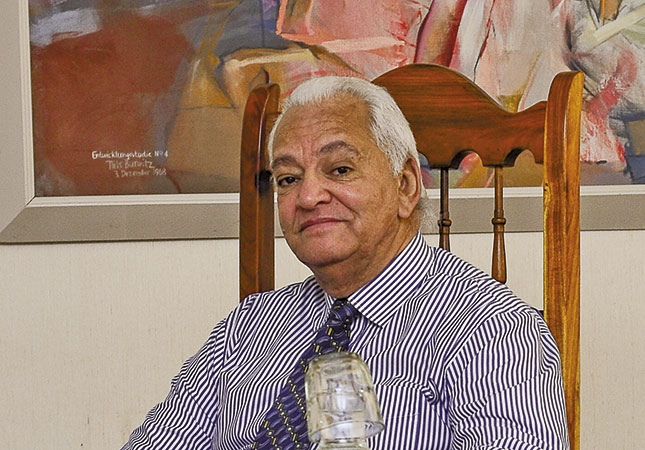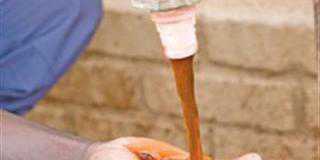
Photo: Annelie Coleman
Please tell us more about the university’s plans to expand its agricultural curriculum.
A flourishing agricultural sector is socio-economically vital not only for South Africa but the continent as a whole. We’ve therefore decided to reposition ourselves in order to capacitate a broader spectrum of agriculturalists and producers on the continent. One such consideration is the reinstatement of an independent faculty of agriculture. The agricultural disciplines currently form part of the Faculty of Natural Sciences and Agriculture after the amalgamation of the two faculties several years ago.
READ:Small-scale ostrich farming success
In its quest to strengthen the agricultural value chain in Africa, the university is committed to afford training and development to as wide a spectrum as possible. One possibility is the creation of an independent entity such as an international agricultural academy for Africa. This would serve as an agile special purpose vehicle to provide practical and purposeful training to participants in Africa.
It will be owned by the university, but the execution of the training and development will fall outside the normal governance structures of the institution to afford it agility in partnership with other role players in the industry. The agricultural academy will thus be of value to both small and developing farmers, given the challenges of land reform and the importance of capacitating and supporting new land recipients. At the same time, support will be provided to our commercial farmers through research and development.
A feasibility study for the implementation of an agricultural engineering degree is currently underway, with great anticipation from the Department of Higher Education and Training. The implementation date will be communicated in due course.
Why the emphasis on Africa?
Africa holds about 60% of the undeveloped arable land in the world. Malawi, for instance, has at least five million hectares of arable land, of which only a small fraction is utilised. In South Africa, we have about 1,5 million hectares, of which the majority by far is utilised. It is our responsibility as an institution of higher learning to develop long-term sustainable and profitable methods to unlock the full potential in Africa to our north.
Conservation agriculture for biodiversity preservation is set to become a decisive factor in modern agriculture, as is game farming. It is thus also our task to provide training and research in that regard. The Faculty of Natural and Agricultural Sciences has programmes looking at ways of capacitating smallholder farmers. It is nevertheless important to partner with other role players, such as commercial farmers, in the agricultural value chain in these endeavours to find ways of maximising our collective efforts.
How do you plan to involve the private sector in your plans?
We are of the view that creating research chairs in partnership with the agricultural sector is an important way forward. We are, for example, engaging with Grain SA about such a possibility, focusing on fertiliser research. The agricultural sector
is challenged by government decisions on the size of farms. These directives need to be supported by proper research regarding critical thresholds for optimal productivity.
Do you cater for students from Africa?
The African continent is well-represented, but we would also like to increase the number of students from elsewhere in the world. We currently have students from Uganda, Lesotho, Ghana, Ethiopia, Sudan and Namibia, to name a few. Our international students are mostly bursary holders and set a good example in terms of being disciplined and hard workers.
What sets agricultural training and research at the UFS apart from its competitors?
We have special academic strength in livestock training and research, with expertise in breeding, nutrition and physiological manipulation. Research on crops, irrigation and salinity, water harvesting and the optimisation of water- use are other key focus areas; as are agricultural economics, sustainable agriculture, rural development and extension as well as disaster risk management.
The UFS is also part of an inter-university cooperation programme – Crop Scientists for Agriculture in Africa (CSAA). In this mobility programme, 12 African partner universities are collaborating in the training of professionals to enhance agricultural productivity and assure food security for sub-Saharan Africa.
The objective of the programme is to produce high-calibre scientists who will lead training, manage and innovate the research for development, and produce graduates with the capability of understanding all aspects of research. It also aims to give graduates an opportunity to broaden their knowledge in plant sciences and biotechnology which will permit them to engage in science-led agricultural development.
CSAA plans to build strong national, regional and global consortia to rationalise regional resources for agricultural innovations within Africa. The development of agri business skills and other social skills is also an important objective.
Email Prof Neil Heideman at [email protected].
This article was originally published in the 21 August 2015 issue of Farmer’s Weekly.












